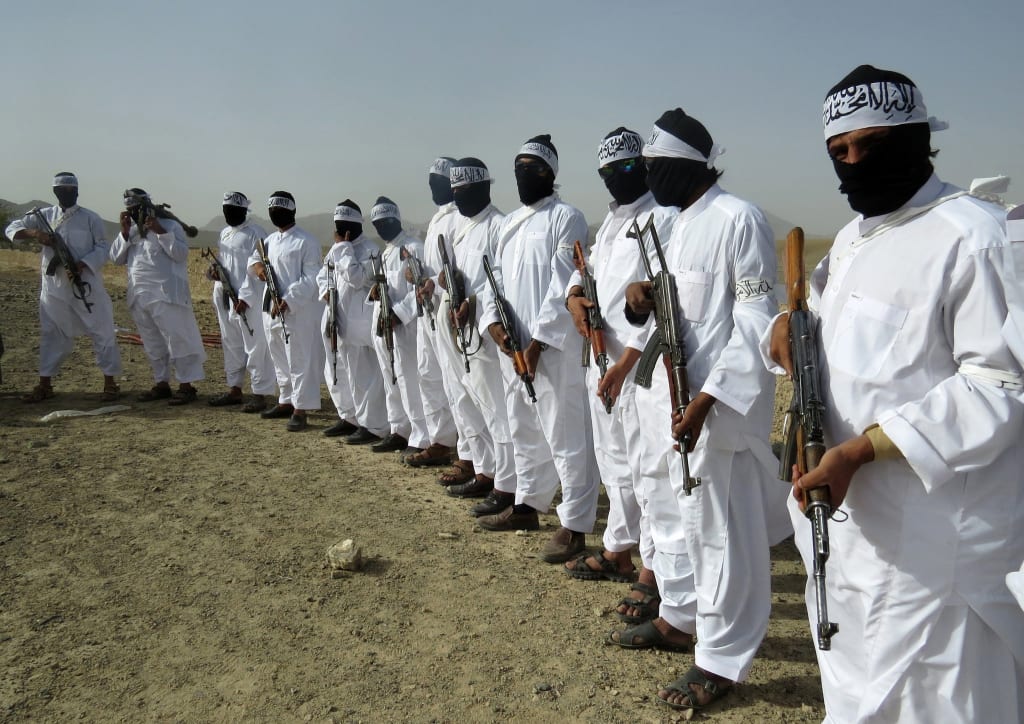Why Has the Taliban Not Yet Been Defeated?
Reasons as to Why US Interventionism in Afghanistan Persists

In the wake of the horrific 9/11 terror attacks, the US and its allies joined forces in the name of security and global peace, and the fight against the "plague" of terrorism. When invading Afghanistan in 2001, their intentions were clear: to destroy the Taliban government after such failed to provide information on Osama bin Laden, leader of the prominent terror group al-Qaeda, and provide Afghanistan with a strong representative central government which would support the US’ fight on terror.
Arguably there has never been a time where US presence in Afghanistan has not been controversial—however with President Trump's new commitment of troops to the area a question naturally arises in the minds of many—why, after 16 years of intervention, has the US, a leading global superpower and the biggest military force on the planet, been unable to defeat the Taliban in Afghanistan?
I see there to be three main answers to this question.
Firstly, I would argue that one reason the insurgent (that is, the Taliban) has yet to be defeated is due to the US and its allies’ insufficient military presence in the area. In a country of 32 million habitants, 11,000 US troops seem insignificant—and there is good reason to believe that they are. According to David Petraeus’ "COIN" (counterinsurgency) manual, 20 soldiers per 1,000 civilians are needed on the ground to successfully combat an insurgency which would equate to a massive 640,000 troops on the ground, more than 58 times as many troops currently in Afghanistan! Therefore the answer to this question may be a simple one—the Taliban has not been defeated due to the numerical weakness of intervention.
Almost as a contradiction to this first point, one must also take into account the possible counter-productivity of the counter insurgency effort. As seen at numerous points in history, international intervention during domestic or civil wars offers the side not receiving such support to depict themselves as nationalist protectors, defenders of the local people, and to put it simply, the “good guys”—just as Stalin did of the Bolsheviks and the Red Army during the Russian Civil War for example, when the Tsar-supporting White Army received aid from capitalist Britain, France, and the US. Every civilian death attributed to the US and its allies is profit to the Taliban—boosting recruitment, promoting a desire for revenge against the interventionist supporting central government and aiding their general cause.
Last but certainly not least, the primary cause of elongated conflict and an inability to defeat the Taliban in my mind is the lack of a strong and stable central government in Afghanistan, whom the US could support and rely on. Since the overthrow of the Taliban as the official governing body in 200, a new interim power-sharing government lead by Hamid Karzai and then Ashraf Ghani has been present in the country. However, issues with this government are not uncommon or unknown—corruption is beyond wide spread, incompetence is evident, and widespread support for such a government is, unsurprisingly, limited, some studies stating support being as low as 27% of the population. This promotes the Taliban as a feasible alternative government to support, as well as meaning that this weak government is unable to crack down on opposition, leading to an inability for the Taliban to be defeated.
As an undergraduate student I will not attempt to offer a solution to provide peace in Afghanistan, nor a one step simplified answer how the Taliban must be defeated, as global politics is just not that simple. However I would argue that the reasons for the inability of global superpowers to defeat a national insurgent group is an interesting and crucial topic for debate, as we consider the position and role of the US in Afghanistan and the international system, and the real strength that the biggest military power on the planet possesses.






Comments
There are no comments for this story
Be the first to respond and start the conversation.